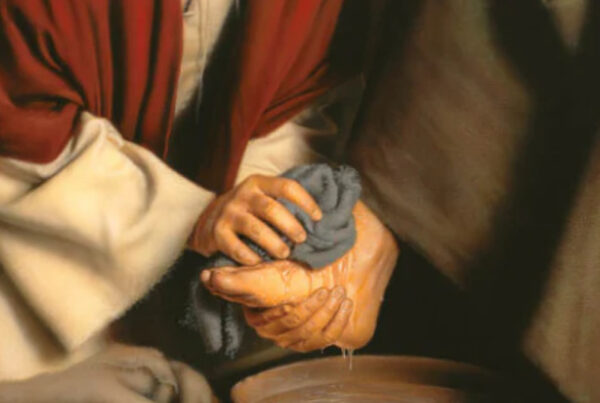Book of Hosea
Chapter 2
Today’s reading is a continuation of the images we encountered in Chapter 1. Gomer the prostitute gave birth to three children, each of whose names showed how distant the people had strayed in their relationship with God. The prostitute who became a mother perpetuated, so to speak, her unfaithfulness through her children. This is where Chapter 2 picks up the narrative and expounds on why she is so unfaithful.
It might be useful to state the obvious here: the text is meant to be read on two levels. On one level, Hosea actually married a prostitute who had children. However, this arrangement is meant to communicate God’s message to the people. As such, the prostitute, unfaithful, represents Israel; her lovers, other gods (specifically named here as the god Baal); and her children, what their unfaithfulness engendered: a break in their covenant relationship with God.
When we delve into Chapter 2 with these ideas in mind, we begin to understand why God considered Israel as betraying Him. We also bump into some very strong language. Did that get their attention?
A long time ago, when God lovingly took care of the Israelites and led them out of Egypt, He gave them the Law to help them follow His ways. He stated very simply: “I am the Lord your God, who brought you out of Egypt, out of the land of slavery. You shall have no other gods before me. You shall not make for yourself an idol in the form of anything…” (Exodus 20:2-4) This is part of the Ten Commandments, the very basic foundation of the Law. Yet, at the time of Hosea, we find that Israel was following other gods, looking to them to provide food and sustenance (5). They did not acknowledge that God had a part in the natural world or providing for them; the very gifts He gave them they were presenting to Baal (8). Oddly, though, they seemed to have stuck to some of their traditions and, at the same time, completely muddled God, His covenant and law with other practices from the surrounding area, celebrating both New Moons and Sabbath days (11). Perhaps they were trying to cover all their bases; take a little bit of this and a little bit of that. Sounds amazingly contemporary.
When you read the whole chapter, you might notice that the narrative has two distinctive parts. After the strong language of verses one through thirteen, we find the exact opposite in the remainder of the chapter: loving, encouraging language. Although God was most clearly unhappy with the Israelites, He would not be so forever. After the consequences of their sin, He will restore them anew. We notice that HE is the One to do the restoring. (Here is that same dialectic that we saw in Chapter 1.)
What emerges from these two parts is more than God’s holiness and His provision. Indeed, we find the essential problem, why they turned their backs on the Lord and looked to another god; this very basic reason is repeated in the text: “…has not acknowledged Me…”(8), “…but Me she forgot…” (13). This seems so simple; remember the Lord, acknowledge Him in their lives. And, yet, they did not. They had, over time, completely forgotten Him, who He is and what He had done for them, again and again, in the past. Sometimes, it is okay to forget. But other times, it is not. He wants us to remember Him. We, then, might not be surprised, in the second part of the text, when God described the people’s restoration to a full and loving relationship with Him; He ends with: “…and they will say, ‘You are MY God’” (23). A very personal acknowledgement and remembrance.
Key Verse(s):
“She has not acknowledged that I was the one who gave her the grain, the new wine and oil, who lavished on her the silver and gold – which they used for Baal. … I will betroth you to me forever; I will betroth you in righteousness and justice, in love and compassion. I will betroth you in faithfulness, and you will acknowledge the Lord.” ~ Hosea 2: 8,19–20
Questions to ponder:
- What are examples of when it is okay to forget? What are examples of when it is not okay to forget?
- How can you remember God in your own life? What concrete steps can you take so that you do not forget Him?



